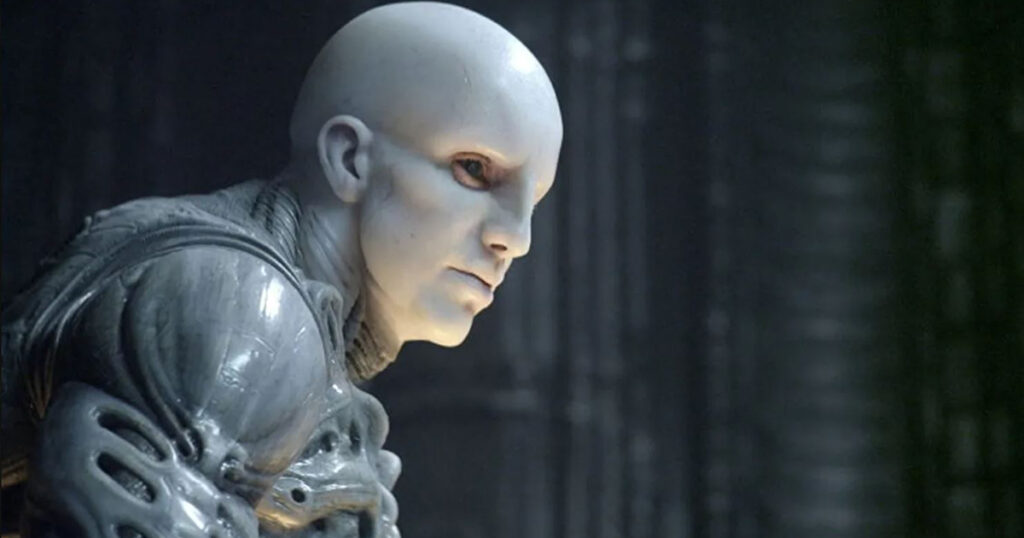[7]
Director Ridley Scott returns to the Alien franchise in a movie that attempts to shed light on the mysteries of his original 1979 film. On one hand, I’m not a fan of exposing mysteries that have enraptured Alien fans for several decades. But if that has to be the mission, Prometheus is at least entertaining in its execution.
Structurally, the film is almost a remake of sorts, with an ensemble of scientists and explorers landing their vessel, the Prometheus, on a mysterious planet to investigate an odd structure that ends up containing, well… the aliens. The aliens aren’t quite the ones we’re familiar with, though. This is a prequel to the events of Alien, so they are a few steps behind on the evolutionary ladder. But clear parallels can be drawn to the original film’s centerpiece moments, namely the introduction of the first facehugger, and later, the first chest-burster.
The infamous chest-burster moment belongs to John Hurt’s character in the first film, but here it is bequeathed to Noomi Rapace. She plays a scientist named Shaw who becomes pregnant with an alien not through a facehugger implantation, but by sex with an infected human male. Her lover, played by Logan Marshall-Green, is poisoned with — let’s call it ‘alien goo’ — by the ship’s android, David (Michael Fassbender). David isn’t diabolical like Ian Holm’s character in Alien, but merely following orders from a mysterious, hidden guest somewhere aboard the ship. When Shaw discovers the fetus isn’t human, and that’s it’s growing exponentially, she enters a futuristic self-surgery capsule and performs an emergency C-section on herself. The creature is removed alive and thrashing as Shaw staples herself up and escapes the capsule. The scene is definitely one of the film’s highlights.
The numerous parallels to the original Alien screenplay keep Prometheus from becoming a great film in its own right. But it’s still a good film in the ways it distinguishes itself thematically. Whereas Alien is just a great horror film set in outer space, Prometheus is more of a true science-fiction piece, asking the big, classic questions of the genre: Who are we? Where did we come from? It flirts with blasphemy, too. Shaw’s character wears a cross around her neck, yet comes to the film’s mysterious planet expecting to find humankind’s creators, who she calls ‘the Engineers’. Another character aboard the Prometheus believes humans have become gods by creating androids. The film’s dramatic climax is a confrontation between ‘gods’ and ‘creations’. But it coincides with a grim discovery: that the Engineers want to destroy us now, and their weapon of choice is the alien xenomorph.
Prometheus gets more interesting as it goes, but stops far short of tying up all its loose threads or fully explaining everything. It ends in a way that we expect a further sequel might hold more answers. The film comes so many decades after the original Alien, and in many ways feels so unnecessary, that I choose not to look at it as a direct prequel or even as an official entry in the franchise. Think of it more as an entertaining fan film or an intriguing appendix.
With Charlize Theron, Idris Elba, and Guy Pearce.
Oscar Nomination: Best Visual Effects

